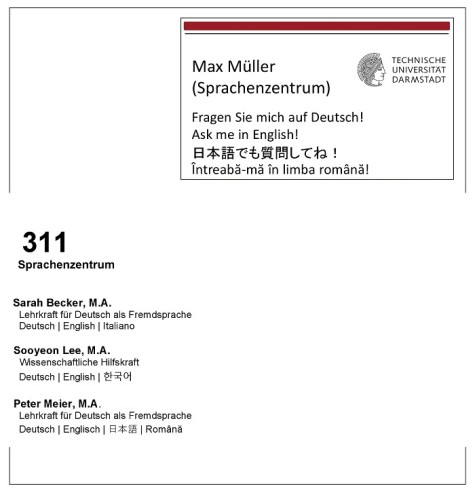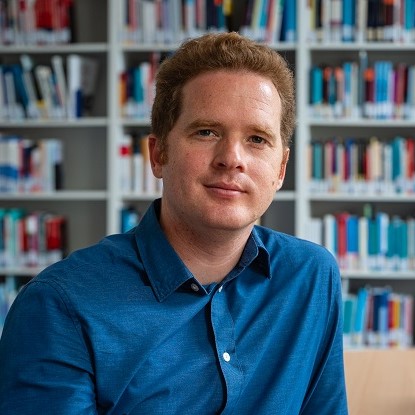TU Darmstadt’s Languages Policy includes a catalogue of action items to foster functional multilingualism on an individual and institutional level All members of the University are invited to participate. Here you will find ideas and impulses.
The Languages Policy implementation team is currently working on planning and implementing the following action items of the Languages Policy:
- Piloting and enhancing the cooperation project PALS (Programme for Academic and Language Socialisation) with Directorate VIII for international students on Master’s degree programmes offered in English
- University-wide survey of language diversity at TU Darmstadt
Below you will find some examples of action items that the team of the Language Resource Centre, the Department of Linguistics – Multilingualism and other organisational units have already implemented. This list is constantly being updated:
What can you do?
TU Darmstadt’s Languages Policy seeks to encourage all members of the University to take small steps to foster functional multilingualism. Here you will find ideas and impulses for putting multilingualism and plurilingualism into practice.
Do you have any other inspiring ideas? Then write a message to mehrsprachigkeit@spz.tu-…























